BECAUSE
It’s the Kinder Choice.
animals matter., our health matters., the planet matters.
Choosing Plant-Based Is Choosing Compassion and Sustainability.
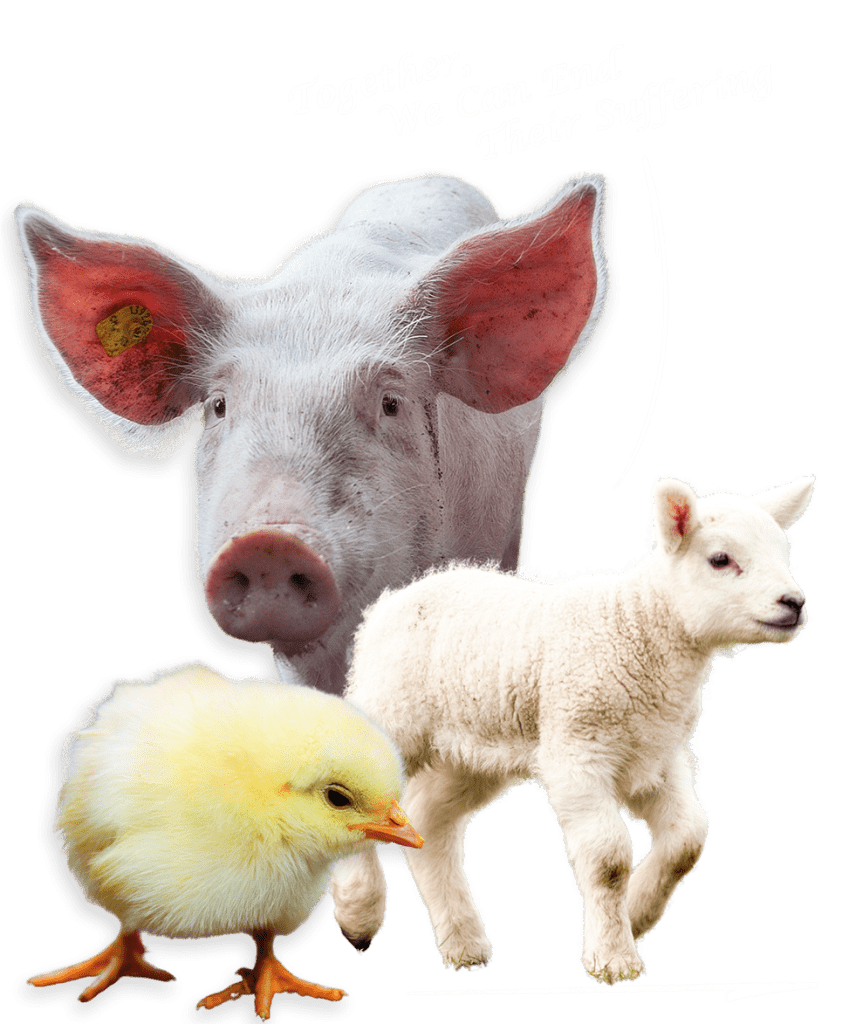
Embrace Plant-Based Eating
Compassion, Health, and a Sustainable Lifestyle
Every life matters. Yet billions of animals each year are raised in factory farms where their most basic needs—and their right to live freely—are denied. They are intelligent, emotional beings with the capacity to love, to fear, and to feel pain. But instead of compassion, they are met with confinement, cruelty, and a system that sees them as commodities.
Choosing a plant-based lifestyle is a powerful act of kindness. It’s a way of saying: they are not ours to exploit. By replacing meat, dairy, and eggs with plant-based alternatives, you take a stand for animals—refusing to support an industry built on suffering.
But the impact doesn’t end there. A plant-based diet nourishes your body with the natural power of fruits, vegetables, legumes, grains, nuts, and seeds. It supports your health, lowers your environmental footprint, and aligns your daily choices with your deepest values: compassion, justice, and sustainability.
Shifting to a plant-based lifestyle doesn’t have to be overwhelming — it starts with small, intentional steps. You don’t need to be perfect. You just need to begin.
Need support? You’re not alone. Thousands are making the shift every day. Follow recipes, join plant-based communities, and stay curious. This journey is yours — and every step you take matters.
Going plant-based is not about restriction. It’s about discovery.
Let this be your beginning.


Steps to becoming plant-based

Know Your “Why”
Understand your motivation: health, animal welfare, or the environment. Having a clear reason helps you stay committed and confident.

Educate Yourself on Nutrition
Learn how to get key nutrients: protein, iron, calcium, B12, and omega-3. Great plant sources include legumes, nuts, seeds, leafy greens, whole grains—and possibly supplements.

Transition Gradually
Start by cutting red meat, then poultry and seafood. Later, remove eggs and dairy—or go one meal at a time (e.g., start with plant-based breakfasts). Move at your own pace—slow change is still progress.

Discover Plant-Based Alternatives
Try plant milks (oat, almond, soy), plant-based cheeses, tofu, tempeh, and meat substitutes. Explore plant-based recipes and recreate your favorite meals without animal products.

Make Your Environment Plant-Based
Stock your kitchen with plant-based essentials. Switch to cruelty-free, plant-based-friendly cosmetics, cleaning products, and clothing if you’d like to go beyond food.

Get Support & Be Kind to Yourself
Follow plant-based communities, influencers, or forums. Don’t worry if you slip up—no one is perfect. Progress is better than perfection.
Tips for Eating a Healthy Vegan Diet
The foods we put in our bodies matter — not just for our health, but for our energy, focus, and long-term well-being. A balanced plant-based diet can provide all the essential nutrients your body needs. Here’s how to do it right:
Incorporate a variety of colorful fruits and vegetables into your meals. Each color group contains unique antioxidants, vitamins, and phytonutrients that support different aspects of your health.
Fruits are rich in fiber, water, and essential vitamins like vitamin C and potassium. Snack on apples, berries, bananas, or oranges throughout the week for natural energy and immune support.
Fiber supports digestion, balances blood sugar, and helps you feel full longer. Beans, whole grains, lentils, vegetables, and seeds are excellent sources of fiber in a plant-based diet.
You don’t need dairy to meet your calcium needs. Leafy greens (like kale and bok choy), fortified plant milks, tofu, almonds, and sesame seeds are all great plant-based calcium sources.
Protein is essential for muscle repair and immune health. Enjoy a variety of legumes, lentils, chickpeas, quinoa, tofu, tempeh, seitan, and nuts to meet your daily protein needs.
Vitamin B12 isn’t naturally found in plants, so it’s important to include fortified foods (like plant milks or cereals) or take a reliable B12 supplement to stay healthy and energized.
Replace This With This ...
Almond milk, oat milk, soy milk, cashew milk
Lentils, chickpeas, black beans, tofu, tempeh, seitan, textured soy
Nut-based cheeses (cashew, almond), soy cheese, nutritional yeast
Vegan cream cheese (made from cashews, tofu, or coconut)
Coconut yogurt, almond yogurt, soy yogurt, oat yogurt
Non-dairy ice cream (coconut milk, almond milk, oat milk)
Vegan butter (plant oils), coconut oil, olive oil, avocado
Silken tofu, chickpea flour mix, mashed potatoes, JUST Egg (mung bean)
Flax egg, chia egg, applesauce, mashed banana, aquafaba (chickpea brine)
Maple syrup, agave nectar, date syrup

Remember, veganism is more than food
Veganism isn’t just about what’s on your plate — it’s a way of living with the intention to reduce harm to all beings. In a world full of exploitation, choosing compassion means looking beyond diet.
Here are a few everyday habits to rethink on your vegan journey.

Fashion
Vegan fashion avoids materials like leather, wool, silk, and feathers — all made from animals. Fortunately, cruelty-free alternatives are now widely available. No need to discard your current wardrobe, but consider ethical choices moving forward.

Entertainment
Veganism means avoiding entertainment that exploits animals — like circuses, zoos, racing, or animal rides. Instead, connect with animals through ethical safaris, nature tours, or by volunteering at sanctuaries where they’re respected and protected.

Animal Testing
Animals like rabbits, mice, and rats are still widely used in product testing—especially in the beauty and pharmaceutical industries. Many suffer or die in painful procedures that are both outdated and unnecessary. Although more brands are shifting toward ethical practices, animal testing remains embedded in many areas of product development. To avoid supporting it, look for products labeled cruelty-free or certified by trusted organizations. Today, many ethical brands are proud to state they don’t test on animals—and they make that clear in their messaging.
Explore Plant-Based Foods
Healthy, Sustainable & Compassionate Choices
Transitioning to a plant-based lifestyle doesn’t mean giving up flavor, variety, or satisfaction. In fact, it’s a chance to explore an exciting and diverse world of food that’s better for your health, animals, and the planet.
Whether you’re preparing meals at home or eating out, there are countless plant-based options available to suit every taste and lifestyle.
Cooking plant-based at home is easier than ever. From hearty curries and pastas to fresh salads and smoothies, the possibilities are endless. Focus on whole, nourishing ingredients like grains, legumes, vegetables, fruits, nuts, and seeds—and experiment with plant-based alternatives for meat, dairy, and eggs.
More and more restaurants now offer vegan or plant-based options, clearly labeled and full of flavor. Whether you’re grabbing a quick bite or dining at a local favorite, don’t hesitate to ask for plant-based substitutions—many places are happy to accommodate.
Exploring new foods is part of the joy of going plant-based. Be curious, try new things, and discover how delicious compassion can be.

GlobalData reported that 70% of the world's population is either reducing or eliminating their consumption of meat. This trend is driven by various factors, including concerns about health, animal welfare, and the environmental impact of meat production.
Eat Better: Guide & Tips

Shopping Guide
Learn how to choose cruelty-free, sustainable, and nutritious plant-based products with ease.
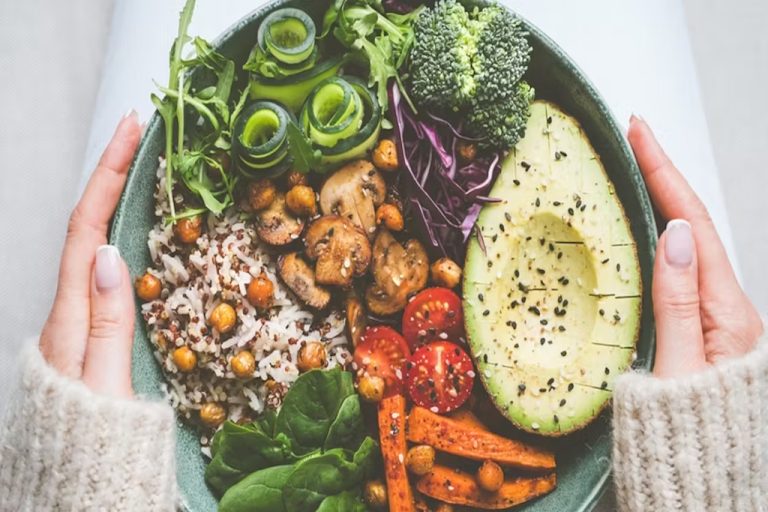
Meals and Recipes
Discover delicious and simple plant-based recipes for every meal.
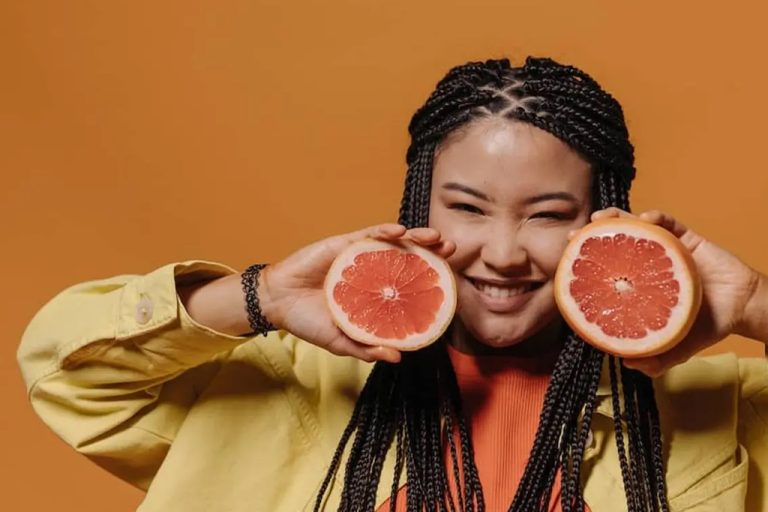
Tips and Transitioning
Get practical advice to help you smoothly switch to a plant-based lifestyle.
Ready to Make a Difference?
You’re here because you care — about people, animals, and the planet.
Your choices matter. Every plant-based meal you eat is a building block for that kinder world.
Do vegans need supplements?
Plant-Based Nutrition: Essential Supplements for a Healthy Vegan Diet
A well-planned plant-based diet can provide nearly all the nutrients your body needs and is often healthier than the typical Western diet that includes meat, fish, eggs, and dairy. People following a plant-based diet tend to consume more fiber, antioxidants, and beneficial plant compounds. However, there are a few nutrients that both plant-based eaters and non-plant-based eaters should pay attention to, including vitamin B12, vitamin D, and iodine. Since vitamin B12 is mainly found in animal products, those on a plant-based diet need fortified foods or supplements. Vitamin D levels can be low due to limited sun exposure, and iodine intake may be insufficient without foods like iodised salt or seaweed.
Omega-3 fatty acids are another important nutrient to consider. While plant-based sources provide ALA, the body’s conversion to the active forms EPA and DHA is limited, so some following a plant-based diet may benefit from algae-based supplements. It’s important to note that low levels of vitamin D, iodine, and omega-3 are common in the general population, not just those on plant-based diets. Therefore, monitoring intake and using supplements or fortified foods when needed can help everyone maintain optimal health.
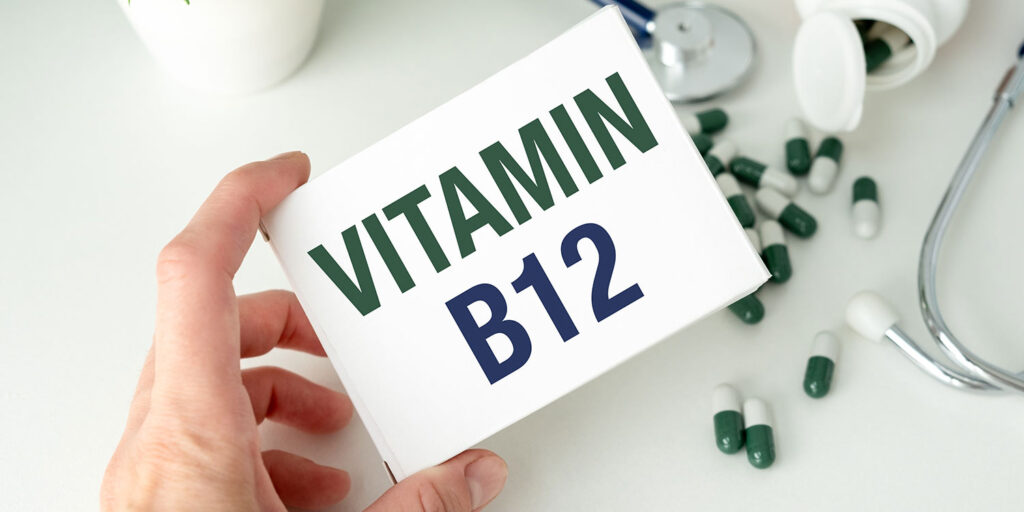
B12 is essential—and easy to get.
Most vegans need a B12 supplement, but that’s not unique. Many people, regardless of diet, are low in B12. Today’s meat contains far less B12 than it once did—largely because farmed animals are already given supplements. So why not skip the middleman and take your own?
Daily B12: What You Need to Know
Most adults need only small amounts of vitamin B12, but not all of it gets absorbed — especially from supplements. That’s why experts suggest taking a daily supplement of 50 micrograms, or 2,000 micrograms weekly. You can also include B12-fortified foods in your diet — such as plant-based milks, nutritional yeast, breakfast cereals, and spreads. Although official guidelines suggest as little as 1.5 to 4 micrograms per day, many health experts recommend a higher daily intake (4–20 micrograms) to ensure adequate absorption and prevent deficiency. B12 is water-soluble, so any extra is naturally excreted from the body, making regular supplementation safe and essential.
Why Do We Need B12?
Vitamin B12 helps the body make energy from food, supports nerve health, red blood cell production, DNA synthesis, and works with folic acid to improve iron use, immunity, and mood. B12 is naturally made by soil bacteria. In the past, people (and animals) got it from unwashed produce. Today, modern sanitation means we must get it from fortified foods or supplements. Even farm animals get B12 through supplementation — so it's better to skip the middleman. Although the body only needs small amounts, regular intake is essential. High doses (up to 2,000 mcg daily) are considered safe. However, absorption can be affected by certain medications (like Metformin or PPIs), smoking, or health conditions.
Do I Need a Supplement?
Yes — B12 supplements are recommended for vegans and anyone over 50, as absorption naturally declines with age. Taking a supplement helps prevent deficiency.
Signs of B12 Deficiency
Symptoms may include fatigue, low energy, tingling sensations, muscle weakness, depression, and memory or concentration issues. B12 deficiency can also raise homocysteine levels, increasing the risk of heart disease. If concerned, consult a doctor for a simple test — it’s easily treatable with supplements or injections.
Best Plant-Based Sources of B12
Top plant-based sources include fortified options like nutritional yeast, yeast extracts, plant milks, yoghurts, desserts, breakfast cereals, and margarine. Always check labels to ensure they’re B12-fortified — and remember, supplements are still essential!
References
- Benham AJ, Gallegos D, Hanna KL et al. 2022. Vitamin B12 Supplementation Adequacy in Australian Vegan Study Participants. Nutrients. 14 (22) 4781.
- Campdesuner V, Teklie Y, Alkayali T et al. 2020. Nitrous Oxide-Induced Vitamin B12 Deficiency Resulting in Myelopathy. Cureus. 12 (7) e9088.
- Fang H, Kang J and Zhang D. 2017. Microbial production of vitamin B12: a review and future perspectives. Microbial Cell Factories. 16 (1) 15.
- Marques de Brito B, Campos VM, Neves FJ et al. 2023. Vitamin B12 sources in non-animal foods: a systematic review. Critical Reviews in Food Science and Nutrition. 63 (26) 7853-7867.
- Rizzo G, Laganà AS, Rapisarda AM et al. 2016 Vitamin B12 among Vegetarians: Status, Assessment and Supplementation. Nutrients. 8 (12) 767.
- Sobczyńska-Malefora A, Delvin E, McCaddon A et al. 2021. Vitamin B12 status in health and disease: a critical review. Diagnosis of deficiency and insufficiency – clinical and laboratory pitfalls. Critical Reviews in Clinical Laboratory Sciences. 58 (6) 399-429.
- Watanabe F and Bito T. 2018. Vitamin B12 sources and microbial interaction. Experimental Biology and Medicine (Maywood). 243 (2) 148-158.
- Temova Rakuša Ž, Roškar R, Hickey N et al. 2022. Vitamin B12 in Foods, Food Supplements, and Medicines-A Review of Its Role and Properties with a Focus on Its Stability. Molecules. 28 (1) 240.

Why Vitamin D Matters – and How to Get It?
Vitamin D helps the body absorb calcium, supports immune function, and maintains healthy bones and muscles. While we can make it through sunlight exposure, factors like location, skin tone, time of year, and sunscreen use can affect this process.
How Much Do You Need Daily?
Most adults need 10–20 micrograms (400–800 IU) of vitamin D per day, depending on age, location, and sun exposure. During autumn and winter—or if you get little sunlight—it’s recommended to take a daily supplement of 10 micrograms (400 IU). People with darker skin, older adults, or those who cover their skin may need it year-round.
Why Do We Need Vitamin D?
Vitamin D is essential for maintaining healthy bones, teeth, and muscles by helping the body absorb calcium and regulate phosphate levels. Known as the "sunshine vitamin," it's produced in the skin through exposure to sunlight, but factors like darker skin, sunscreen, limited sun exposure, and season can reduce its effectiveness. There are two main forms: vitamin D2, which is always vegan, and D3, which is usually derived from animals but is also available in vegan forms made from mushrooms or lichen. Some plant-based foods are fortified with vitamin D, but it's important to check labels, as not all added D is vegan. If you're not getting enough from sunlight or food, a vegan D2 or plant-based D3 supplement is a reliable option.
Do I need a supplement?
Whether you need a vitamin D supplement depends on your sun exposure. If you spend time outdoors regularly during sunnier months, your body likely makes enough. However, if you stay indoors, cover up, or live in areas with limited sunlight—especially during autumn and winter—a supplement of 10 micrograms (400 IU) daily is recommended to maintain healthy levels.
The Best Plant Sources of Vitamin D
Plant-based sources of vitamin D are limited, but you can find it in fortified foods such as plant-based milks, breakfast cereals, spreads, and some brands of orange juice. Mushrooms exposed to UV light also provide vitamin D, usually in the form of D2. Always check labels to ensure products are fortified, and when possible, choose those labeled with vegan-friendly vitamin D2 or D3 from lichen or algae.
Signs of Deficiency
Vitamin D deficiency may cause muscle weakness, bone pain (especially in the spine, ribs, shoulders, or pelvis), and in children, it can lead to rickets – a condition causing bone deformities, anaemia, and increased risk of respiratory infections.
References
- Institute of Medicine (IOM). Dietary Reference Intakes for Calcium and Vitamin D.
- Holick, M.F. Vitamin D Deficiency. New England Journal of Medicine. 2007; 357(3):266-281.
- Munns, C.F., Shaw, N., Kiely, M., et al. Global Consensus Recommendations on Prevention and Management of Nutritional Rickets. Journal of Clinical Endocrinology & Metabolism. 2016; 101(2):394-415.
- Pludowski, P., Holick, M.F., Pilz, S., et al. Vitamin D effects on musculoskeletal health, immunity, autoimmunity, cardiovascular disease, cancer, fertility, pregnancy, dementia and mortality – A review of recent evidence. Autoimmunity Reviews. 2013;12(10):976-989.
- Cashman, K.D., Dowling, K.G., Škrabáková, Z., et al. Vitamin D deficiency in Europe: pandemic? The American Journal of Clinical Nutrition. 2016;103(4):1033-1044.
- Harvard T.H. Chan School of Public Health – The Nutrition Source: Vitamin D
- Institute of Medicine (US) Committee to Review Dietary Reference Intakes for Vitamin D and Calcium. Dietary Reference Intakes for Calcium and Vitamin D. National Academies Press (US); 2011.

The Essential Role of Protein in Human Health and Nutrition
Protein is essential for building and repairing tissues, supporting the immune system, and producing enzymes and hormones. Adults generally need about 0.8 grams of protein per kilogram of body weight daily, with higher needs for athletes, pregnant women, and older adults. Adequate protein intake helps maintain muscle strength and overall health, while deficiency can cause weakness and health problems.
How Much Protein Do You Need Daily?
On average, men should consume about 55 grams of protein daily, while women need around 45 grams. Current guidelines recommend approximately 0.8 grams of protein per kilogram of body weight each day. For example, a moderately active woman weighing 65 kilograms requires about 52 grams of protein daily, whereas an active man weighing 88 kilograms needs around 70 grams. If your goal is to build muscle, your protein intake should increase based on your activity level and muscle-building targets, with elite athletes sometimes consuming up to 2 grams per kilogram of body weight daily. Children, adolescents, and breastfeeding women generally need slightly more than 0.8 grams per kilogram, but the main point is to include good protein sources in your diet along with healthy carbohydrates and fats.
Are we getting enough?
Most people in the UK consume more than enough protein. According to the 2014 UK National Diet and Nutrition Survey, the average daily protein intake was 85 grams for men and 65 grams for women. This means that most individuals are getting at least 130% of the recommended daily amount, well above the minimum needed for good health.
Why do we need it?
Protein is an essential part of every cell in our body and is vital for many processes, including hormone production and other important functions. It is made up of amino acids, nine of which are essential because our bodies cannot produce them, so we must get them from our diet. The old myth that you must combine different foods at each meal to get complete protein is outdated—eating a varied and balanced diet throughout the day ensures you get all the amino acids you need. Despite marketing claims about “high-protein” foods, most people in Western countries actually consume more protein than needed, and protein deficiency is very rare. So, if you eat a healthy, varied vegan diet, protein won’t be a concern.
Do I need a supplement?
Unless you’re a professional athlete or engage in very physically demanding work, you likely don’t need protein powders or supplements. Most people can meet their protein needs through a balanced diet without extra supplementation.
The best plant sources
The best plant sources of protein include legumes like lentils, chickpeas, and black beans; soy products such as tofu and tempeh; nuts and seeds like almonds, chia seeds, and pumpkin seeds; and whole grains including quinoa, brown rice, and oats. These foods provide a good amount of protein and, when eaten as part of a varied diet, supply all the essential amino acids your body needs.
Signs of deficiency
Protein deficiency is very rare in Western countries and usually occurs due to illness or aging rather than diet. As long as you consume enough calories, you’re likely getting enough protein. Signs of deficiency may include low energy, fatigue, poor concentration, muscle loss, and a weakened immune system that leads to more infections. Kwashiorkor, a severe form of protein deficiency causing a swollen abdomen, is more common in developing countries where protein intake is insufficient.
References
- World Health Organization (WHO):
Reports and guidelines on protein requirements and essential amino acids, emphasizing the importance of adequate protein intake for health. - United States Department of Agriculture (USDA) – Dietary Guidelines for Americans
Comprehensive guidelines on daily protein needs, sources, and recommendations for different population groups. - Institute of Medicine (IOM) – Dietary Reference Intakes
Official recommendations on protein intake for various age groups, pregnant and lactating women, and athletes. - American Journal of Clinical Nutrition
Peer-reviewed studies on protein requirements, muscle synthesis, and effects of protein deficiency. - FAO (Food and Agriculture Organization of the United Nations)
Technical reports and publications on protein quality, plant-based protein sources, and global nutrition guidelines. - Nutrition Reviews and Advances in Nutrition Journals
Articles exploring myths about protein combining, vegan protein adequacy, and the role of protein in health. - National Health Service (NHS) UK
Public health information on protein intake, deficiency symptoms, and sources, based on national surveys like the UK National Diet and Nutrition Survey.

Iron: Why It’s Essential and How Much You Need
Iron is a vital mineral that helps carry oxygen in the blood through a protein called hemoglobin. It supports energy production, immune function, and overall cellular health. The body needs iron to make red blood cells and prevent anemia, a condition characterized by fatigue and weakness.
How Much Iron Do You Need Daily?
Adult men generally require about 8 mg of iron per day, while adult women need about 18 mg due to menstrual losses. Pregnant women need even more—around 27 mg daily. Vegetarians and vegans may require higher amounts because plant-based iron (non-heme) is less easily absorbed than iron from animal sources (heme iron).
Why Is Iron Important?
Iron’s main role is to transport oxygen from the lungs to all parts of the body. It also supports metabolism and immune health. Without enough iron, the body struggles to produce enough healthy red blood cells, which can lead to iron deficiency anemia.
Do I Need a Supplement?
No, a healthy vegan diet containing the below foods on a daily basis will cover your needs.
Do I Need a Supplement?
The best plant sources of iron include whole grains like quinoa, wholemeal spaghetti, and wholemeal bread, as well as fortified breakfast cereals. Pulses such as lentils, tempeh (fermented soybeans), tofu, baked beans, kidney beans, and peas are excellent sources. Seeds like pumpkin seeds, sesame seeds, and tahini (sesame seed paste) also provide good amounts of iron. Additionally, dried fruits such as apricots and figs, seaweed like nori, and dark green leafy vegetables such as kale are rich in iron. Some herbs and spices contain significant iron levels (20-100 mg per 100 grams); although used in small amounts, regular consumption can meaningfully contribute to overall iron intake. For example, three teaspoons of mixed herbs provide about 2 mg of iron.
Signs of Deficiency
Symptoms of iron deficiency include fatigue, weakness, pale skin, shortness of breath, and impaired cognitive function. Severe deficiency can cause anemia, which requires medical attention.
References
- World Health Organization (WHO) — “Iron deficiency anaemia: assessment, prevention, and control.”
(WHO Technical Report Series, 2001) - National Institutes of Health (NIH), Office of Dietary Supplements — Iron Fact Sheet for Health Professionals.
- Harvard T.H. Chan School of Public Health — The Nutrition Source: Iron.
- Mayo Clinic — Iron deficiency anemia: Symptoms and causes.
- Academy of Nutrition and Dietetics — Vegetarian and Vegan Nutrition: Iron Recommendations.
- FoodData Central (USDA) — Nutrient Database for Iron Content in Foods.
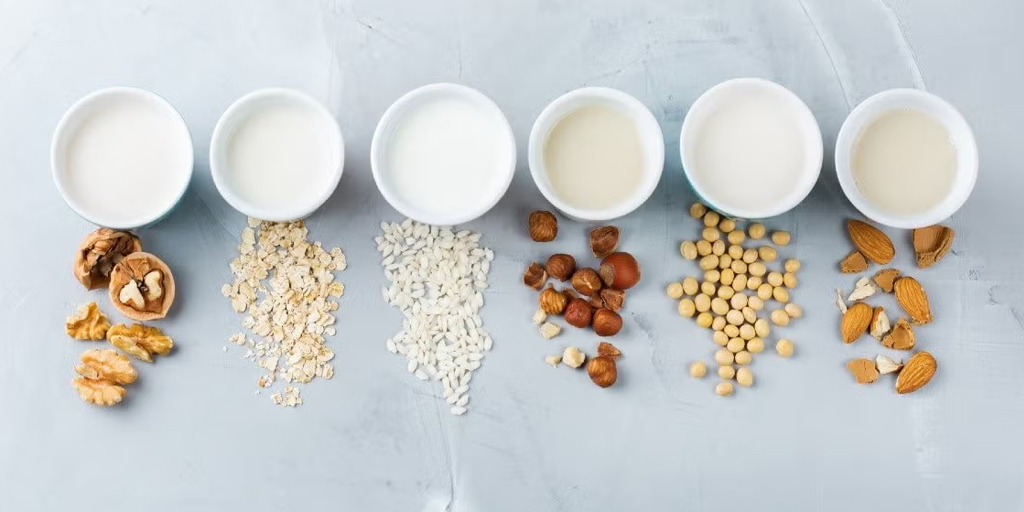
Calcium: Essential for Strong Bones and Overall Health
Calcium is a vital mineral essential for building and maintaining strong bones and teeth. It also plays a crucial role in muscle function, nerve transmission, blood clotting, and hormonal secretion. The body tightly regulates calcium levels to support these processes.
How Much Calcium Do You Need Daily?
Adults generally need about 1,000 mg of calcium per day. Women over 50 and everyone over 70 should aim for 1,200 mg daily to maintain bone health. Children and teenagers require between 700 and 1,300 mg depending on their age and growth needs. Pregnant and breastfeeding women also need slightly more calcium to support bone development for their babies.
Are we getting enough?
Most people get enough calcium, according to the 2017 National Diet and Nutrition Survey. However, teenagers aged 11 to 18 often fall short, with girls and boys getting only 84–89% of the recommended amount. Around 19% of girls, 8% of boys, and 8% of women aged 19 to 64 don’t meet their calcium needs.
Why do we need it?
Calcium is essential not only for strong bones but also for muscle function, nerve signals, cell communication, and hormone production. About 99% of the body’s calcium is stored in bones, which need enough vitamin D to use calcium effectively. Our bones constantly lose and rebuild calcium in a process called bone remodeling. While regular calcium intake is important, consuming more than the body needs doesn’t provide extra benefits and can even cause harm. Excess calcium—especially from supplements or dairy—may increase fracture risk and lead to issues like kidney stones, especially if intake exceeds 2,000 mg per day.
Do I need a supplement?
Calcium supplements may offer little benefit and could be harmful. They cause a rapid rise in blood calcium, which can lead to artery blockage and increase heart disease risk. In contrast, calcium from food is absorbed gradually, helping maintain steady levels and lowering this risk. It’s best to get calcium from a balanced vegan diet and avoid supplements unless advised by a healthcare professional.
The Best Plant Sources of Calcium
Top plant sources of calcium include tofu (made with calcium sulfate), fortified vegan cereals (like Ready Brek), calcium-fortified plant milks, dried figs, kale, sesame seeds and tahini, tempeh, wholemeal bread, baked beans, butternut squash, almonds, Brazil nuts, spring greens, and watercress. Although spinach, chard, and beet greens are high in calcium, they contain oxalates that reduce calcium absorption. It’s better to get calcium from low-oxalate greens like kale, broccoli, and bok choy, whose calcium is absorbed about twice as well as that from milk. These greens also provide fiber, folate, iron, and antioxidants—nutrients often missing in dairy.
Signs of Calcium Deficiency
Symptoms include muscle cramps or spasms, confusion, fainting, numbness and tingling in the hands, feet, and face, brittle nails, fragile bones, tooth decay, and fatigue.
References
- National Institutes of Health (NIH) – Calcium Fact Sheet for Health Professionals
- National Diet and Nutrition Survey (NDNS), UK, 2017 Report
- Institute of Medicine (IOM), Dietary Reference Intakes for Calcium and Vitamin D
- Harvard T.H. Chan School of Public Health – Calcium and Milk: Health Benefits and Risks
- American Journal of Clinical Nutrition – Calcium Absorption from Plant Sources
- Mayo Clinic – Calcium Supplements: Are They Necessary?
- World Health Organization (WHO) – Nutritional Anemia and Calcium Deficiency Signs
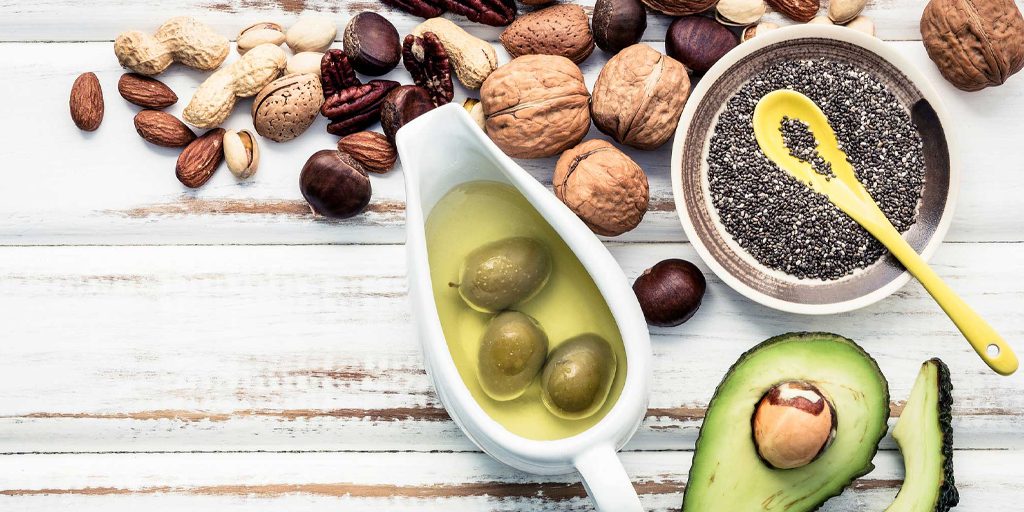
Fat: An Essential Nutrient for Health
Fat is a vital macronutrient that provides a concentrated source of energy and supports many important functions in the body. It helps absorb fat-soluble vitamins (A, D, E, and K), protects organs, insulates the body, and is necessary for hormone production and cell membrane integrity.
How Much Fat Do You Need Daily?
Current guidelines recommend that total fat should provide no more than 33% of your daily energy intake. Saturated fats should be limited to 11%, monounsaturated fats around 13%, polyunsaturated fats about 6.5%, and trans fats less than 2%.
Are We Getting Enough?
Many people consume more saturated fat than recommended, which can increase health risks. Reducing intake by cutting animal products and processed foods helps balance fat consumption and supports better overall health.
Why do we need fat?
Fat is essential for absorbing vitamins A, D, E, and K, providing energy, insulating the body, protecting organs, and cushioning shocks. It’s the most calorie-dense nutrient, offering more than twice the energy of protein or carbs. Plants store fat mainly in seeds (nuts, seeds, soybeans) and some fruits (avocado, olive, coconut), while animals store fat in muscles, under the skin, and around organs.
Do I need a supplement?
A healthy vegan diet with ground flaxseed, hempseed, rapeseed oil, walnuts, and seeds provides enough omega-3s. Fish get omega-3s from plankton and algae, and certain algae now provide both EPA and DHA—available as supplements. Algae supplements are sustainably grown and toxin-free, unlike fish oils, making them a better, eco-friendly omega-3 source. Avoiding fish benefits both your health and the environment.
The best plant sources
Most people consume enough or too much omega-6, often unbalancing their omega-3 intake. To improve this balance, limit omega-6-rich oils like sunflower oil and switch to olive oil (rich in omega-9) for cooking. Increase omega-3 intake by including plant-based sources in your diet. Flaxseed oil is by far the best source containing around 2.7 grams of ALA per teaspoonful.
Signs of deficiency
Deficiency in essential fatty acids (EFAs) is rare and usually occurs only if they make up less than 1-2% of total energy intake, mostly in infants with poor diets. Symptoms include dry skin and hair, brittle nails, headaches, digestive issues, and frequent urination. Low omega-3 intake can also affect behavior, causing hyperactivity, anxiety, sleep problems, and learning difficulties, and is linked to neurological disorders like depression and ADHD. Most people get enough EFAs from a balanced plant-based diet with flaxseed oil, nuts, and seeds, which can quickly fix any deficiency.
References
- National Health Service (NHS), UK. “The Eatwell Guide.” NHS.uk.
- British Nutrition Foundation. “Fats: Types and Functions.” Nutrition.org.uk.
- National Diet and Nutrition Survey (NDNS), UK. “Nutrient Intakes and Status.” GOV.UK.
- Harvard T.H. Chan School of Public Health. “Fats and Cholesterol.” The Nutrition Source.
- Mayo Clinic. “Omega-3 Fatty Acids.” MayoClinic.org.
- American Heart Association. “Saturated Fats.” Heart.org.
- World Health Organization (WHO). “Healthy Diet Fact Sheet.” WHO.int.
- EFSA Panel on Dietetic Products, Nutrition and Allergies (NDA). “Scientific Opinion on Dietary Reference Values for Fats.” EFSA Journal, 2010.

Iodine: Essential for Thyroid Health and Metabolism
Iodine is an essential mineral that plays a vital role in maintaining a healthy thyroid gland, which regulates the body’s metabolism, energy production, and overall growth. It is especially important during pregnancy and early childhood to support proper brain development and prevent health issues related to iodine deficiency. Despite its importance, many people worldwide still do not get enough iodine, making awareness and proper intake crucial for long-term health.
How much do you need daily?
Adults need about 140 micrograms of iodine daily. Most can meet this through a varied vegan diet that includes seaweed, iodised salt, and fortified plant milks.
Are we getting enough?
The UK Scientific Advisory Committee on Nutrition (SACN) warns that iodine intake may be insufficient, especially during adolescence, pregnancy, and development. The 2018 National Diet and Nutrition Survey found low iodine levels in 9% of children (4-10 years), 12% of teens, 14% of adults (19-64), and 8% of older adults. Studies like EPIC Oxford highlight that vegans often have low iodine unless they include seaweed, fortified foods, iodised salt, or supplements.
Why do we need iodine?
Iodine is essential for making thyroid hormones that regulate metabolism and energy use. It’s also vital for brain and nervous system development in babies and children. The iodine content in plants depends on soil levels, while seaweed naturally contains high iodine—especially kelp, which should be eaten sparingly. Too much iodine can disrupt thyroid function, but up to 500 micrograms daily is generally safe.
Do I need a supplement?
If you regularly eat sea vegetables, use iodised salt, and drink fortified plant milks, a healthy vegan diet should provide enough iodine. However, if these foods are limited in your diet, a supplement might be necessary.
The best plant sources
The best plant sources of iodine are sea vegetables (arame, wakame, nori), iodised salt, and fortified plant milks. Other plants like wholegrains, kale, and potatoes contain iodine in small, variable amounts depending on the soil. Check plant milk labels for iodine, often listed as potassium iodide.
Signs of deficiency
Signs of iodine deficiency include an enlarged thyroid (goitre), fatigue, weight gain, more infections, depression, constant feeling of cold, dry skin, and hair loss. It can also harm fetal brain development.
References
- UK Scientific Advisory Committee on Nutrition (SACN) – Iodine and Health
- National Diet and Nutrition Survey (NDNS), UK – 2018 Report
- NHS – Iodine: Why You Need It and Sources
- World Health Organization (WHO) – Iodine Deficiency
- The Vegan Society – Iodine and Vegan Diets
- Harvard T.H. Chan School of Public Health – Iodine
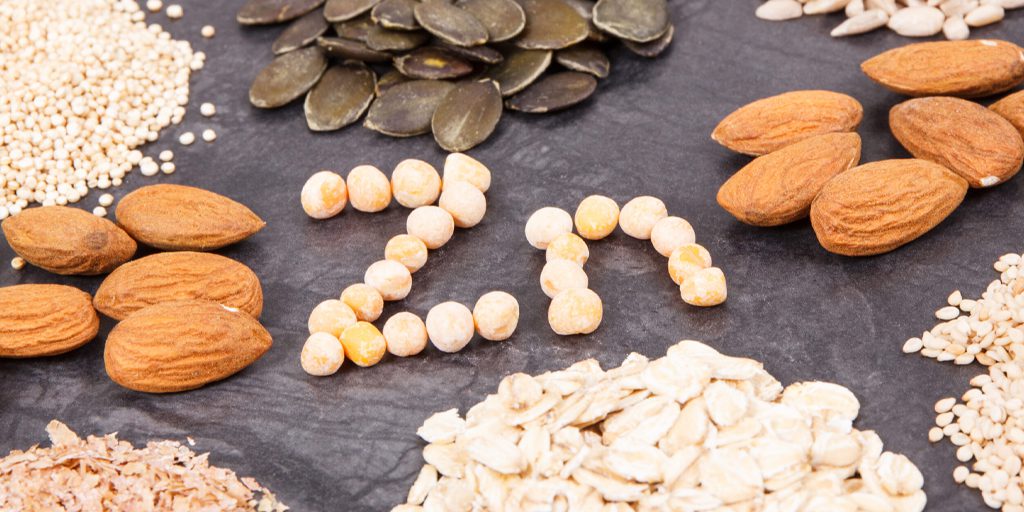
Zinc: Vital for Immunity, Healing, and Growth
Zinc is an essential mineral that plays a key role in maintaining a healthy immune system, supporting wound healing, aiding cell division, and contributing to normal growth and development. It also supports taste and smell functions and is crucial for enzyme activity and DNA synthesis.
How much do you need daily?
The recommended daily intake of zinc varies by gender. On average, adult men need about 9.5 milligrams of zinc per day, while adult women require around 7 milligrams daily. These needs may increase during pregnancy and breastfeeding. Getting enough zinc is essential for supporting the immune system, maintaining healthy skin, aiding wound healing, and supporting many vital bodily functions.
Are we getting enough?
According to the 2016 National Diet and Nutrition Survey, many people are not getting enough zinc. Shortfalls were seen across all age groups and in both sexes. Teenage girls had the lowest levels, with 22% falling below recommended intakes, followed by teenage boys at 17%. Even among adults, 6% of working-age individuals and older men over 65 had inadequate zinc intake.
Why do we need it?
Zinc is essential for cell growth, enzyme function, wound healing, and supporting the immune system. It also plays a key role in processing nutrients and supports vision and male reproductive health by boosting sperm count and motility. Zinc levels in plants depend on soil content, but a well-planned plant-based diet can meet daily needs. However, high doses of zinc can block copper absorption, increasing the risk of anaemia and bone issues. Supplement intake should not exceed 25 mg per day.
Do I need a supplement?
No, a healthy vegan diet containing a variety of zinc-rich foods—such as wholegrains, legumes, nuts, seeds, and fortified products—can provide enough zinc. However, if your intake of these foods is low or your needs are higher (e.g., during pregnancy), a supplement may help.
The best plant sources
Top plant-based sources of zinc include tempeh (fermented soybeans), wholemeal spaghetti, tofu, quinoa, wheat germ, pumpkin seeds, lentils, couscous, wholegrain rice, cashew nuts, sesame seeds, and tahini (sesame seed paste). Including a variety of these in your daily meals can help meet your zinc needs naturally.
Signs of deficiency
Zinc deficiency may lead to skin issues such as acne, eczema, and rashes, along with hair thinning, a weakened immune system, slow wound healing, fatigue, diarrhoea, poor appetite, mental sluggishness, and impaired vision.
References
- NHS (National Health Service, UK)
Official guidance on zinc daily needs, deficiency symptoms, supplementation, and food sources. - Public Health England – National Diet and Nutrition Survey (NDNS), 2016
- British Nutrition Foundation (BNF)
Detailed information on zinc’s role, recommended intake, deficiency, and food sources. - Harvard T.H. Chan School of Public Health
Comprehensive review of zinc’s functions, dietary needs, deficiency risks, and sources. - Institute of Medicine (US) – Dietary Reference Intakes for Zinc
Authoritative report on zinc requirements, toxicity, and dietary sources.
Eye-Opening Plant-Based Documentaries You Shouldn't Miss

Food for Thought
Food for Thought is a powerful yet lesser-known documentary that explores the personal, ethical, and environmental impact of our food choices. Through expert interviews and real-life stories, it offers a thoughtful look at how animal-based diets affect our health and the planet—without relying on shock tactics.

Dominion
Dominion is a hard-hitting documentary that exposes the widespread cruelty in animal agriculture. Narrated by Joaquin Phoenix and Rooney Mara, it uses drones and hidden cameras to reveal the harsh realities behind meat, dairy, and egg production. Far from isolated incidents, Dominion shows that animal suffering is systemic and routine.
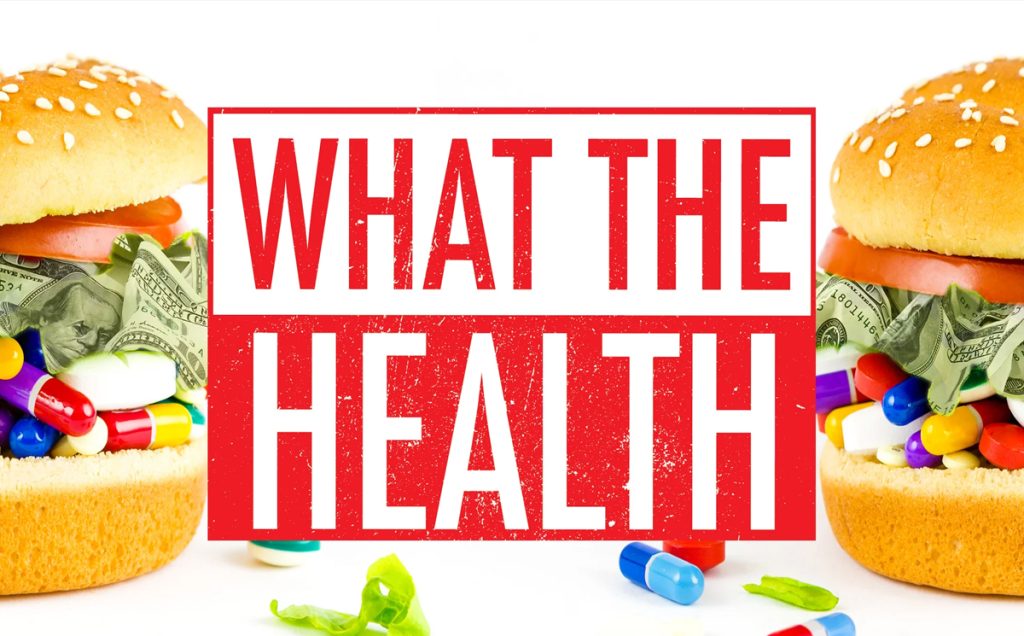
What The Health
What the Health exposes the hidden links between consuming meat, dairy, and eggs and major chronic diseases like heart disease, diabetes, and cancer. Featuring interviews with doctors, nutritionists, and whistleblowers, the film challenges why health charities still promote these foods despite scientific evidence. Bold and uncompromising, it urges viewers to rethink their diets for the sake of their health, animals, and the planet.
Common Mistakes Beginners Make
Transitioning to a plant-based lifestyle is a positive and empowering step—but like any change, it can come with a few bumps along the way. Here are some common mistakes that beginners often make, and how to avoid them:

Not Eating Enough
Plant-based foods are often less calorie-dense than animal products. If you’re feeling tired or hungry, you may simply not be eating enough. Be sure to include satisfying meals with plenty of whole grains, legumes, healthy fats, and plant-based proteins.
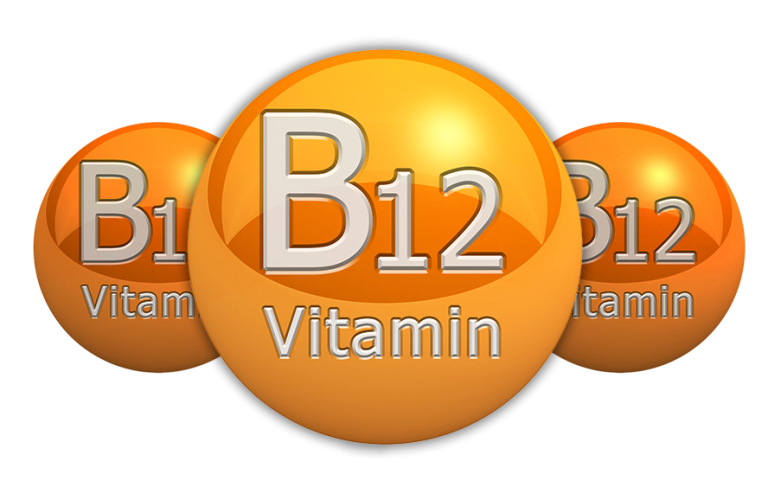
Skipping Key Nutrients
Many beginners overlook important nutrients when switching to a plant-based diet. While it's entirely possible to meet your nutritional needs through plants, some nutrients—like vitamin B12, iron, omega-3, calcium, vitamin D, and zinc—require special attention.

Being Too Hard on Yourself
Transitioning to a plant-based lifestyle is a journey, not a race. Mistakes might happen, and that’s completely normal. Instead of aiming for perfection, focus on progress. Every plant-based choice matters, so if you slip up, learn from it and move forward with compassion—for yourself and others.
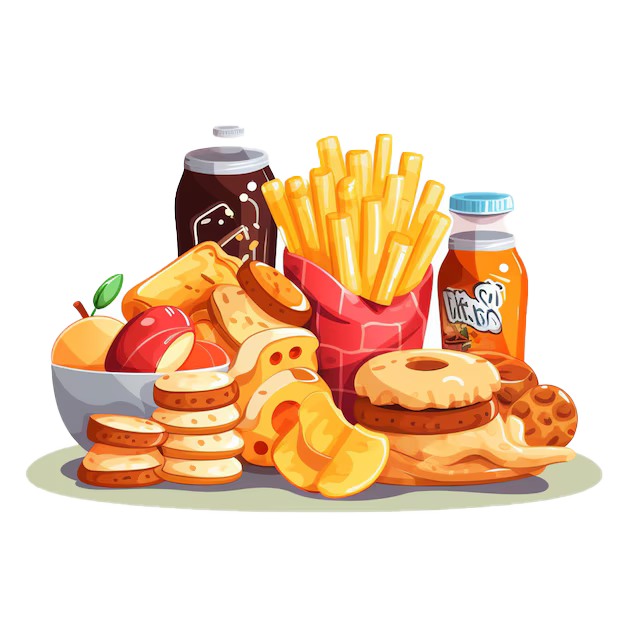
Relying Too Much on Processed Vegan Foods
Vegan doesn't always mean healthy. Many beginners lean heavily on processed meat substitutes, frozen meals, and vegan junk food. While convenient, these should be enjoyed in moderation. Focus on whole, minimally processed ingredients for optimal health.
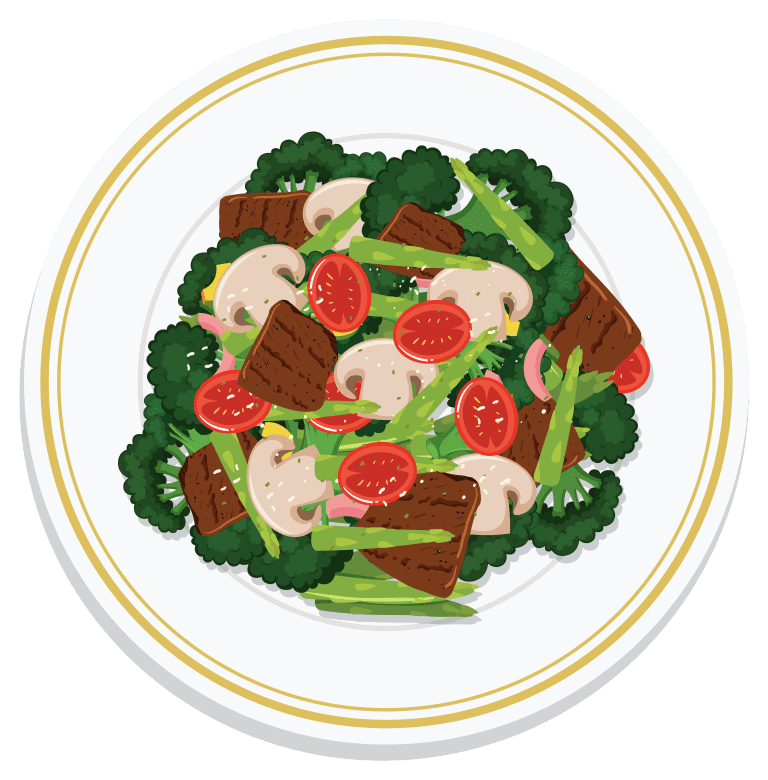
Not Planning Meals Ahead
Without proper planning, it’s easy to default to processed foods or accidentally consume non-vegan ingredients. Taking time to plan meals and shop intentionally helps you stay on track, ensures you get balanced nutrition, and makes the transition to a plant-based lifestyle more sustainable and satisfying.
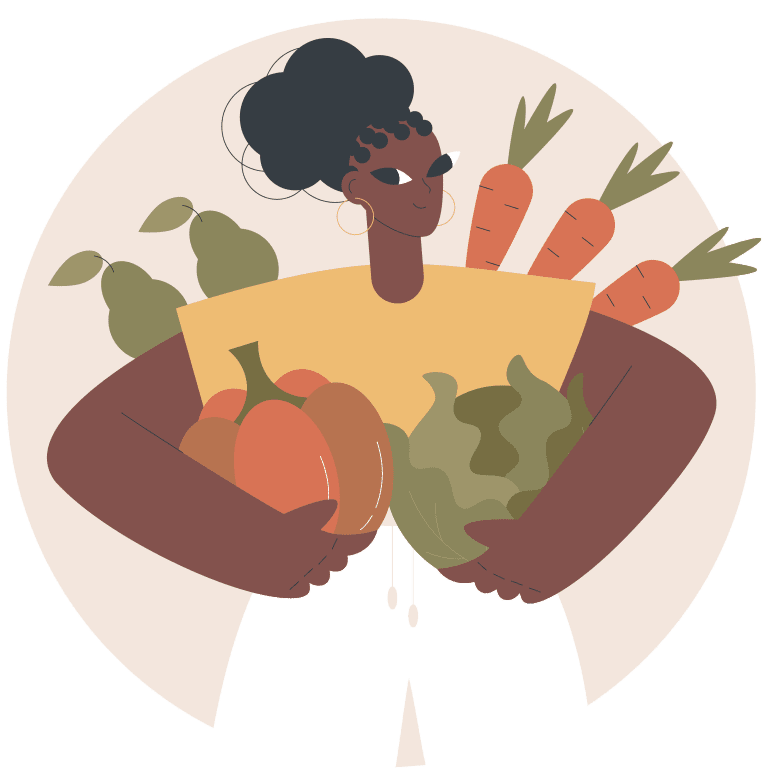
Neglecting Social and Cultural Aspects
Adopting a plant-based lifestyle doesn’t mean giving up social connections or traditions. With a little preparation and openness, you can enjoy meals with friends, dine out confidently, and take part in cultural celebrations—while still honoring your values and making compassionate choices.
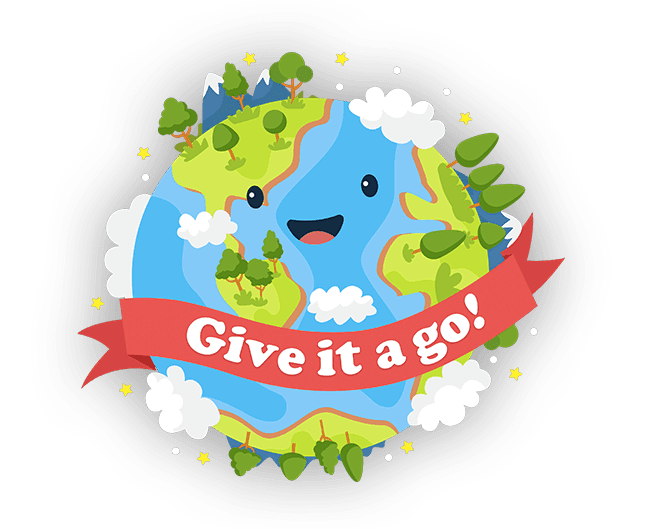
Go plant-based, because a healthier, more sustainable, kinder, and more peaceful world is calling you.
Plant-Based, Because the Future Needs Us.
A healthier body, a cleaner planet, and a kinder world all begin on our plates. Choosing plant-based is a powerful step toward reducing harm, healing nature, and living in alignment with compassion.
A plant-based lifestyle isn’t just about food—it’s a call for peace, justice, and sustainability. It’s how we show respect for life, for the earth, and for future generations.











































